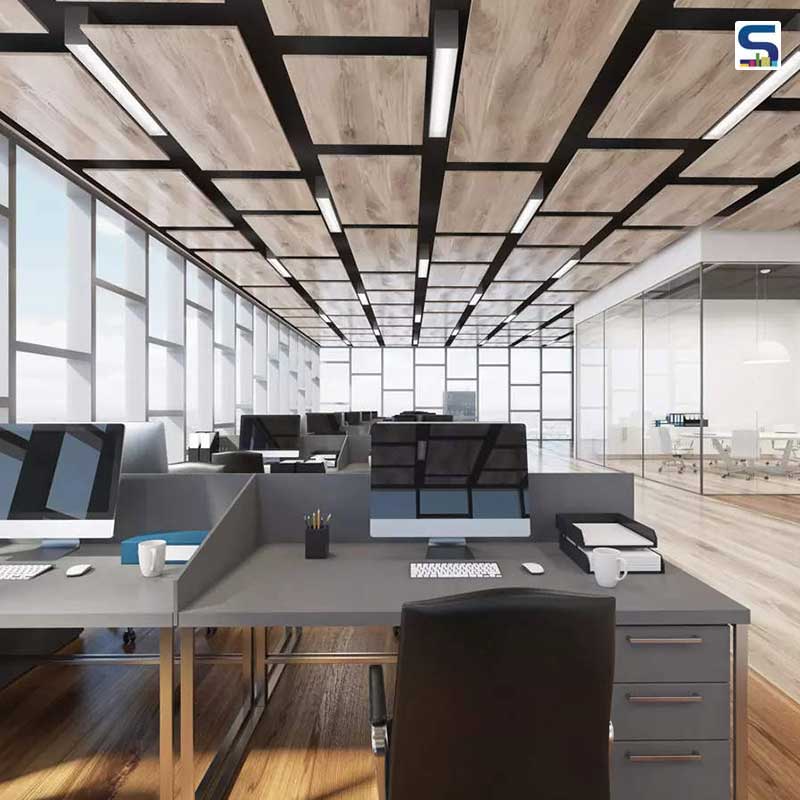
Flexible property, commonly referred as flex property or flex space, is a hybrid of office and industrial space. The usual layout for such spaces includes office space on the front with storage or warehousing space at the backend. Such properties can be standalone or can be located in dense, single-story industrial parks. Flex spaces have the potential of attracting a variety of businesses such as construction, manufacturing, e-commerce, medical and logistical distribution on account of its versatility of spaces for office, warehouse and manufacturing under one roof. A report by Surfaces Reporter (SR).
Significant benefits
- Private access: Unlike multi-tenant office buildings that share common spaces like lobbies, bathrooms and hallways, flex spaces are privately accessed by tenants. Additionally, tenants have private offices, private bathrooms and private walkways.
- Customizability: Unlike other office spaces, tenants can easily increase their office or warehouse space as flex spaces have fewer improvement costs.
- Triple net lease: One of the strongest benefits of flex spaces is the lease. Most tenants have a triple net lease structure where the landlord passes three key expenses onto the tenant, namely, taxes, insurance and common area maintenance (utilities and general expenses). Flex spaces give the owner the opportunity to avoid any incurring costs; while under triple next lease, the landlord is responsible for paying large capital expenditures.
- Length of agreement: Unlike other office spaces which are leased for 7-10 years, flex spaces are leased for a period of seven months to three years.
- Lower initial investment: The huge investment of wiring, design and furniture which are necessary for running an office are eliminated as flex spaces require an initial payment and offer these services.
Flex market in India
According to a joint report by Colliers and Qdesq, flex space stock is expected to cross 60 million sqft in metro and non-metro cities by 2023. The demand is largely driven by consulting, IT-BPM and e-commerce companies that are establishing multiple offices. Metros remain a stronghold for flex spaces, accounting for about 88 per cent of the total stock as of Q3 2021, the report revealed. The report further added: ‘after a lull of one-and-a-half years (due to the pandemic), operators have started expanding since Q3 2021 led by enterprise-driven demand. As occupiers are looking at enhanced flexibility in their leases, we have more reason to believe that the pandemic is playing a key role in accelerating the growth of flex spaces.’ Ramesh Nair, CEO, Colliers (India) informed that ‘in a volatile economic environment, companies are re-evaluating their cost economics and assessing the shift to hybrid work plans. Reverse migration to tier-II cities, the constant growth of new startups and increased occupier confidence driven by vaccination rates have helped in overall improvement.’
As companies are now moving to a decentralised structure, focusing on flexibility and convenience of employees, flex space is emerging steadily in non-metro cities as well. The report further states that total flex stock in non-metro cities is likely to hit 7.8 MSF by 2023, a 50 per cent increase from current levels. Additionally, Ahmedabad, Coimbatore, Indore, Jaipur, Kochi and Lucknow are the top six emerging non-metro locations.
CBRE findings suggest that in India, the interest towards the flexible space segment has risen in 2021. The report informs that the flex space market in India is evolving as it would allow operators to have a higher focus on customized solutions, develop a creative partnership with landlords; allow tenants to optimize portfolios and revise location strategies; and help landlord to hotelise office spaces.
In its The Future is Flex report, India’s flexible stock is expected to grow by 10-15 per cent (y-o-y) from the current 36 mn sqft in the next three years. The report highlights that as of Q1 2021, Bangalore holds a flex stock of 11.6 mn sqft which is the maximum in the country, followed by Delhi-NCR at 6.6 mn sqft and Hyderbad at 5.7 mn sqft. The flex demand in cities like Pune and Chennai is also expected to see growth in the coming years.
The rise in flex spaces
There has been a considerable change in the real estate sector post COVID. JLL Awfis’ report Flex your Workplace lays forth the numerical details highlighting the demand in flex property. 48 per cent of respondents/occupiers, who already have a presence in Tier-II cities, want to further expand. In addition, 78 per cent of these occupiers are expected to expand within the next year, with 84 per cent wanting to utilise flex spaces. Even players who did not have Tier-II city office presence, 34 per cent of companies had employees working from such locations; while 47 per cent of the respondents had a presence in Tier-II cities.
At present, offices have turned out to be more flexible and have evolved in accommodating the changing needs of their employees. While 75 per cent of the flex portfolio, on average, is still in Tier-I cities, the hybrid model is fostering the growth of flex operators in Tier-II cities as well. Reverse migration and cost of living drive the flex market. Big companies and enterprises have accounted for 50 per cent of the demand for flex spaces in the past few years. The average lease size has also been steady in 52,000-56,000 sqft brackets over the past four years.
Image credits: The Economic Times